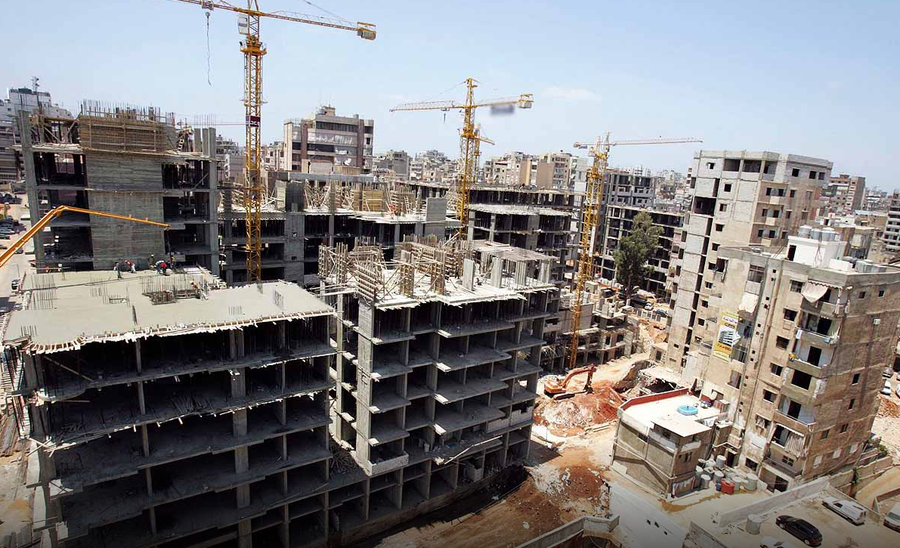
By Enver Robelli
This is a July not only with extreme temperatures. This is a bloody month on the construction sites of Kosovo. How many more deaths must occur before this massacre stops?
While the public's attention continues to be directed at the unconstituted parliament and the political class, whose responsibility only extends to the theft of wages and other privileges and the delivery of empty speeches, another worker died in Ferizaj yesterday. The fourth in a few days. Earlier, two workers died in Gjakova, a worker from Istog died - and now, as a result of the crane collapse, another worker in Ferizaj died. Another was seriously injured.
Regarding the tragedy in Gjakova, the prosecution has announced that serious violations of occupational safety measures were found at the scene. The company where the workers worked had been fined twice, according to the Central Labor Inspectorate. It seems that the fines have not worked. In fact, the repeated violation of occupational safety rules should have led to the temporary closure of the company. As long as state authorities - from the municipal to the central level - do not do their jobs properly, the construction mafia will continue its rampage. By ruthlessly exploiting workers! By exposing them to risks! By not providing them with basic working conditions!
On June 24, a worker died after falling from his workplace in Suhareka. On April 5, a landslide in the Veternik neighborhood of Pristina killed a worker. On March 28, a construction worker died in Veternik after falling from the building he was working on. On February 25, a worker fell from a building in Lipjan and died in hospital a few days later.
As a result of accidents at work in the last 15 years in Kosovo, around 200 workers have died. A mass grave before the eyes of Kosovar society. A massacre before the eyes of the state.
A colossal failure of the entire system - from inspectors who do not do their job properly to inefficient courts and employers who drink the blood of workers day after day by not respecting elementary measures for the protection of workers. In the construction sector, profit through oppression has become almost the rule. Consequently, the loss of lives is also becoming the rule in the face of the general silence that has gripped society.
After the recent tragedies, several weak communiqués were issued by the Kosovo authorities, which recommended measures to protect workers due to high temperatures. Recommendations do not avoid the risk. If a worker is exposed to the sun in an open environment with temperatures up to 50 degrees Celsius, then the likelihood of an accident is very high.
If we look at the neighborhood, we notice the differences between Kosovo and Greece. In this country, the authorities have banned outdoor work between 12:00 and 17:00. This applies, for example, to construction sites or the agricultural sector. Employees of distribution services must have air-conditioned vehicles. Even for tourists there are differences due to the extreme heat. For example, in the Acropolis, which remains closed during the midday, at the peak of temperatures.
You don't have to be a doctor to know that extreme heat can be life-threatening. When the body can no longer regulate its temperature, heatstroke can occur, for example. In Marmaris, in southern Turkey, beachgoers were surprised by wild boars that had come down to look for some cool air.
Just how dangerous a heatwave can be was seen in France: The national health authority reported 480 deaths linked to high temperatures following the heatwave at the start of the summer. Authorities said 70 percent of heat-related deaths do not occur on the hottest days. Rather, it is long periods of heat or lack of coolness that pose a risk.
This heat is also related to climate change. But no one in Kosovo talks about this topic. Climate? What is it? Until August 8, the 120 deputies of the Kosovo Assembly can rest. They can go to the sea, cool off in the mountains or near a river (if there is an unpolluted river left in Kosovo). They have received their salaries and honoraria. I am afraid that by then we will receive more tragic news from the construction sites of Kosovo. In the meantime, the dirty political game will continue.
The first step to starting a dialogue without prejudice is to accept that perhaps the other - even a fierce political opponent - may be right. This quality of dialogue in Kosovo has long since died. People are living "well" with polarization, with rhetorical elimination of the other, with digital banditry, with "hitting", with deformation of facts, with cynicism. With this mix of hatred, intolerance, evil and malice, social values have been overturned, public authorities have been defiled, and those who are not part of the aggressive political-propaganda camp have been dehumanized. Thus, in this swamp of vulgarity, when every day there is news of one or more dead workers, some are living well to the detriment of society. But Kosovo's democracy and the hygiene of public debate have been severely polluted. Hatred, rage, verbal violence risk thickening the political fog even more. Empathy almost no longer exists. The state and society are entering a foggy area, not only legal. In this terrain, wisdom and foresight are seen only as weaknesses. This is the era of the businessmen of hatred./ A2 CNN (A2 Televizion)











